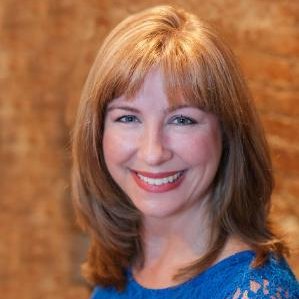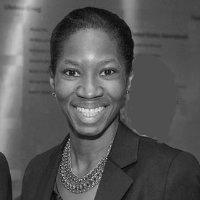 Natalie Runyon, Director of Global Security at Thomson Reuters, wishes she had known just how important it was to seek out leadership training and development early on in her career. Since she cannot go back in time, Runyon is doing the next best thing. She is developing female leaders through the “How to be the CEO of Your Career” program that she created and launched through the New York City Chapter of the women’s network at Thomson Reuters. Supporting the advancement of women through this program has certainly been one of the most rewarding aspects of Runyon’s career because she gets to combine her passions of leadership training and providing a resource for professional women.
Natalie Runyon, Director of Global Security at Thomson Reuters, wishes she had known just how important it was to seek out leadership training and development early on in her career. Since she cannot go back in time, Runyon is doing the next best thing. She is developing female leaders through the “How to be the CEO of Your Career” program that she created and launched through the New York City Chapter of the women’s network at Thomson Reuters. Supporting the advancement of women through this program has certainly been one of the most rewarding aspects of Runyon’s career because she gets to combine her passions of leadership training and providing a resource for professional women.
Career Path
One might say that Natalie Runyon’s career path was anything but linear. Yet all of her experiences have contributed to her becoming an influential leadership strategist for women who want to change the world, in her own words. Runyon was born and raised in Louisiana, and after graduating from Louisiana State University with a degree in International Trade and Finance, she was ready to explore life outside the Pelican State. Runyon headed to Washington, D.C. to work for the CIA, an opportunity she secured the year before when working as an intern the summer before her senior year of college. Determined to find her way to Wall St. to work in the financial services industry, Runyon attended The George Washington University part-time, while working for the CIA, eventually earning her MBA.
In 2003, Runyon packed her bags for New York City to begin her career in the Global Security group at Goldman Sachs. “This was shortly after 9/11, and I had the opportunity to get in on the ground floor of the crisis management program,” said Runyon. She continued, “It was in this role that I discovered my love for training at all organizational and operational levels.” Runyon excelled at crisis management, but after a few years she began to feel the symptoms of burnout set in. “Crisis management is 24/7, and when you are working in global security, the work never stops,” she said.
Recognizing the signs of burnout, Runyon took advantage of a unique opportunity in 2008 to work on rebuilding the go to the Gulf Coast and help victims of Hurricane Katrina recover and begin to rebuild from the disaster that hit the area in 2005. “I had a personal stake in this cause,” said Runyon, “since my grandmother lost her home in the hurricane. Helping with the relief efforts also gave me the opportunity to connect with people outside of the office, which was so rewarding.”
During this time, Runyon received her Leadership Coaching Certification, which was a skill she would be able to apply effectively during her time helping the coastal communities of Louisiana get back on track and in her next endeavor. That same year, Runyon had the opportunity to visit Ghana to do humanitarian work with impoverished children. Speaking about her experience working in Africa, Runyon said, “For the first time, I understood on a much deeper level what it meant to be part of the non-dominant group.” She continued, “It was through these experiences that I learned how important it was to give people the confidence to speak up.”
With a renewed sense of purpose and an interest in how to pursue equality in the workplace through leadership development, Runyon returned to her position at Goldman Sachs. By 2011, Goldman Sachs had undergone major restructuring and Runyon’s position was eliminated after several rounds of layoffs. However, like all of the events in Runyon’s career, this bump in the road had a silver lining.
In 2012, Runyon accepted a job at Thomson Reuters in the security team. Following a series of events, Runyon quickly rose to become the most senior person in her region after 5 months on the job. Runyon was able to apply her experience in crisis management and leadership training and development to take charge.








